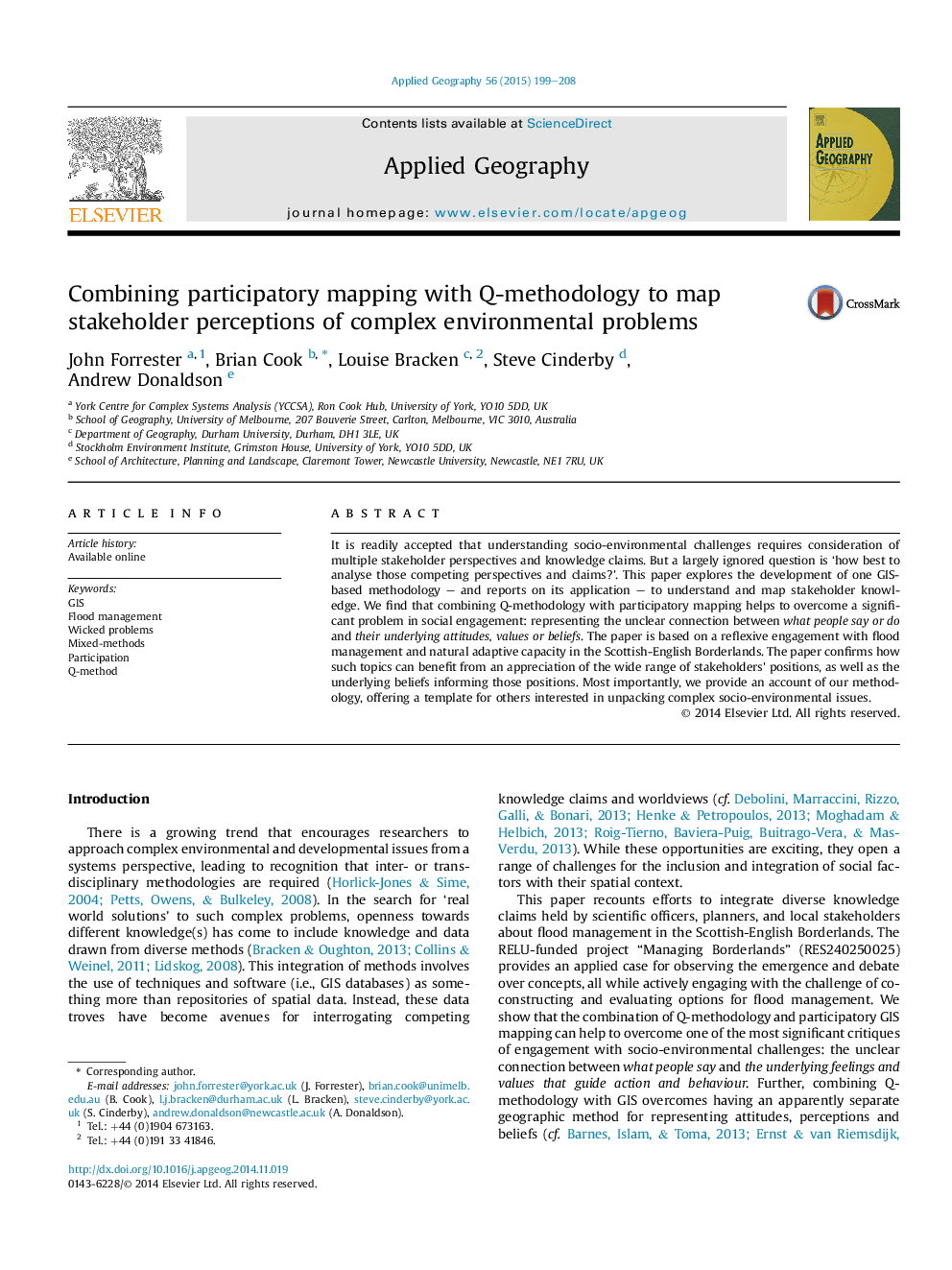| Article ID | Journal | Published Year | Pages | File Type |
|---|---|---|---|---|
| 6538656 | Applied Geography | 2015 | 10 Pages |
Abstract
It is readily accepted that understanding socio-environmental challenges requires consideration of multiple stakeholder perspectives and knowledge claims. But a largely ignored question is 'how best to analyse those competing perspectives and claims?'. This paper explores the development of one GIS-based methodology - and reports on its application - to understand and map stakeholder knowledge. We find that combining Q-methodology with participatory mapping helps to overcome a significant problem in social engagement: representing the unclear connection between what people say or do and their underlying attitudes, values or beliefs. The paper is based on a reflexive engagement with flood management and natural adaptive capacity in the Scottish-English Borderlands. The paper confirms how such topics can benefit from an appreciation of the wide range of stakeholders' positions, as well as the underlying beliefs informing those positions. Most importantly, we provide an account of our methodology, offering a template for others interested in unpacking complex socio-environmental issues.
Related Topics
Life Sciences
Agricultural and Biological Sciences
Forestry
Authors
John Forrester, Brian Cook, Louise Bracken, Steve Cinderby, Andrew Donaldson,
